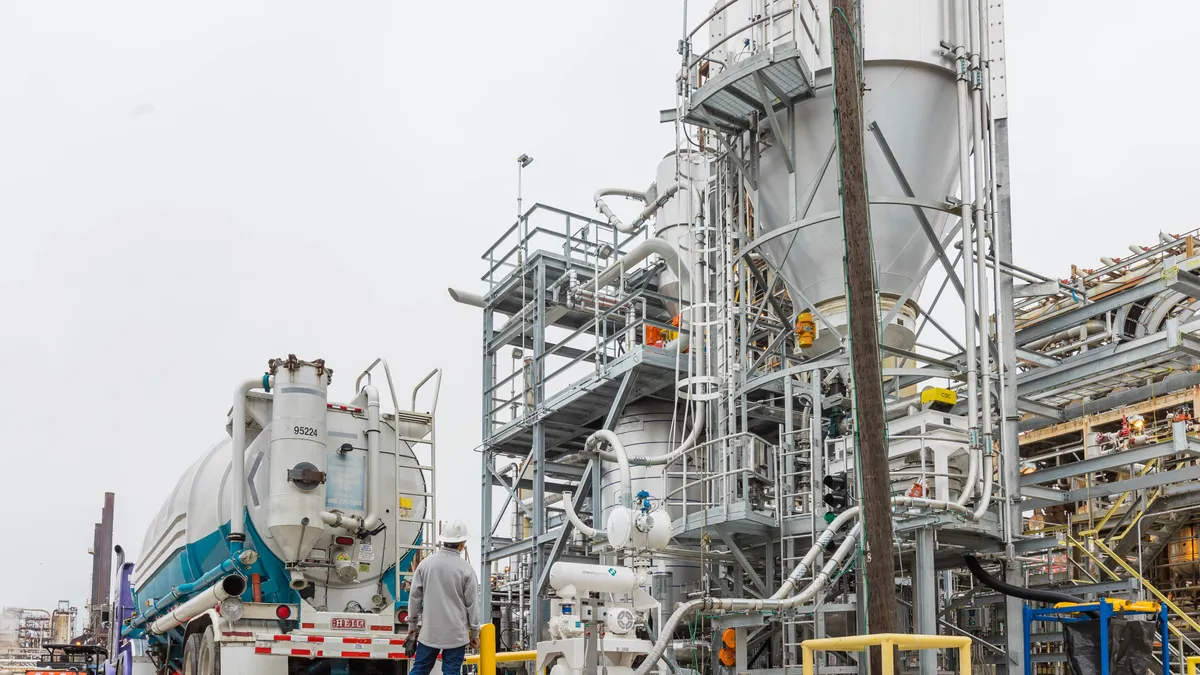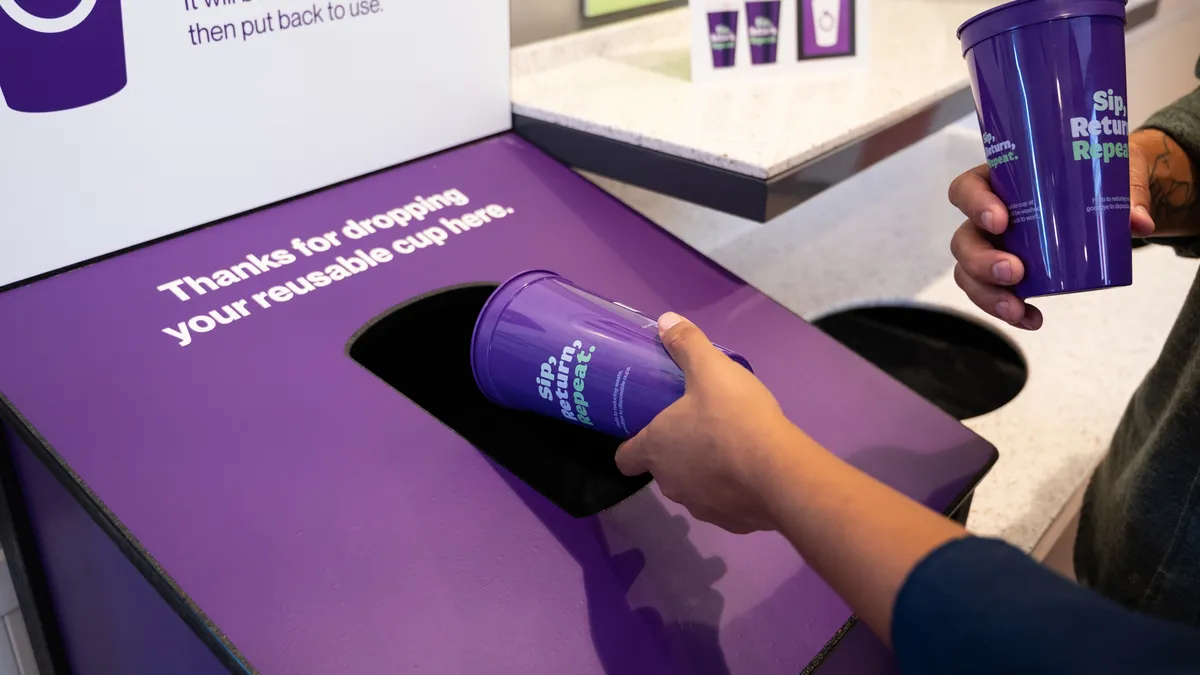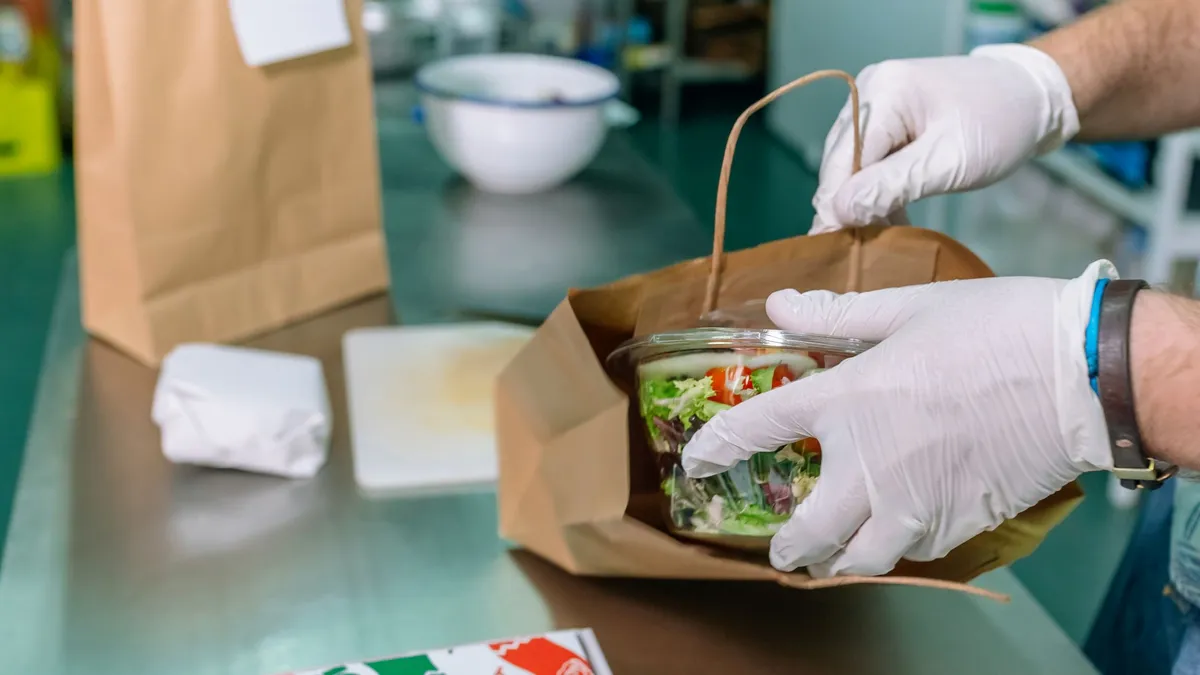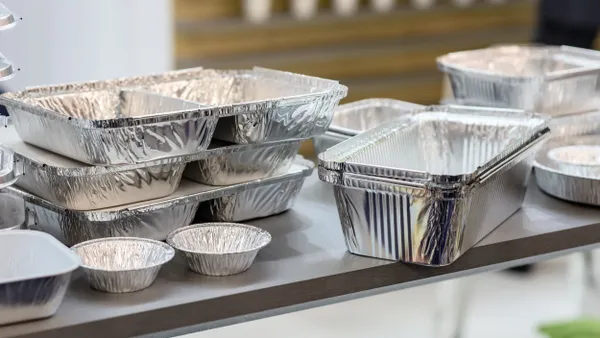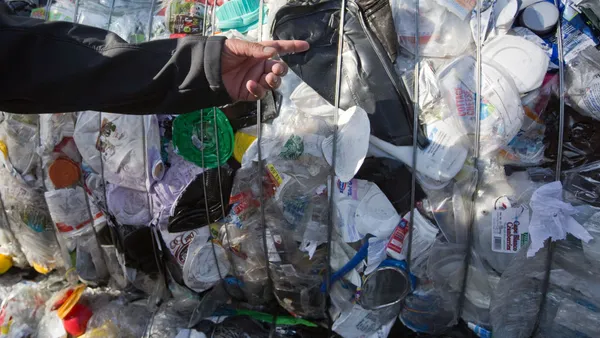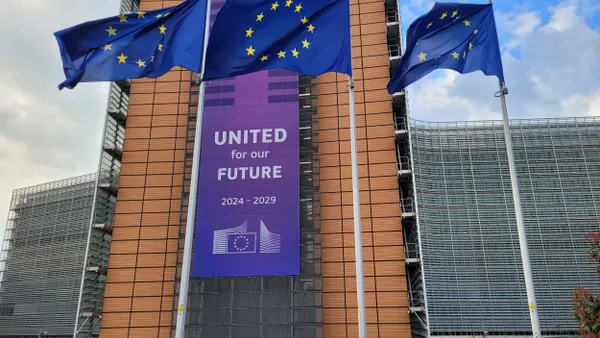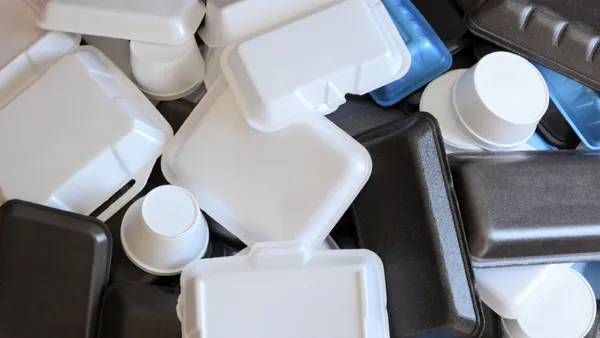Dive Brief:
- ExxonMobil is facing a pair of coordinated lawsuits in San Francisco County Superior Court, announced Monday, related to its role in California’s “plastic pollution crisis” and the limitations of mechanical and advanced recycling to manage waste. They collectively allege deceptive marketing, concealment of harm, and violations of nuisance and unfair competition laws.
- California Attorney General Rob Bonta is seeking to secure an abatement fund, disgorgement (returning illegally obtained profits) and civil penalties, as opposed to traditional damages. Bonta said during a Monday press conference he expects ExxonMobil will pursue a delay and projects the case could take two or three years to be resolved.
- A coalition of environmental NGOs — Sierra Club, Surfrider Foundation, Heal the Bay and San Francisco Baykeeper — also jointly filed a suit seeking injunctive relief. Attorney Niall McCarthy said that “there are very specific costs that the nonprofits incurred in terms of cleanup,” and also that “unless you stop the problem at its source, i.e. the production of single-use plastics, we're going to be having this discussion in [five, 10 years.]”
Dive Insight:
While consumers may think of gas stations when they think of ExxonMobil, the company is the largest producer of polymers, AG Bonta highlighted.
California has already separately been investigating ExxonMobil since 2022 as part of a probe into the fossil fuel and petrochemical industries’ role in plastic pollution. The American Chemistry Council and the Plastics Industry Association have attempted to block subpoenas. California also sued ExxonMobil, along with Shell, Chevron, ConocoPhillips, BP and the American Petroleum Institute last year, alleging creation of “statewide climate change-related harms.”
“While these may be the first cases of their kind ... I hope that they won't be the last,” Bonta said. “Other states who have been harmed by ExxonMobil should, respectfully, consider bringing their own lawsuit.”
Bonta cites statistics pegging the U.S. recycling rate below 10%. The limitations of mechanical recycling are in part what’s spurred interest in chemical recycling. But during the press conference, Bonta explained that, through subpoenas, his lawsuit reveals that “ExxonMobil has hidden the truth about the technical limitations” of its advanced recycling plans.
Advanced recycling, also known as chemical recycling or molecular recycling, refers to a category of processing technologies that transform recovered plastics by breaking them down to their molecular level to serve as “building blocks” for new plastics or other products. Plastics and packaging companies view this as a way to handle hard-to-recycle plastics, like flexible packaging, and boost the amount of material in new packaging counted as recycled content. Critics say the scale and potential benefits of chemical recycling are overblown, these sites contribute to pollution, and that the process should not be considered “recycling.”
Bonta’s claims include that 92% of plastic waste processed using the company’s chemical recycling technology becomes fuel rather than plastic. The AG’s office also asserted that the company’s technology “cannot handle large amounts of post-consumer plastic waste such as potato chip bags without risking the safety and performance of its equipment.” Ultimately, ExxonMobil’s products from chemical recycling make up less than 1% of its total virgin plastic production capacity, Bonta stated.
Bonta’s complaint repeatedly references ExxonMobil’s history in the packaging industry, including its role in operating manufacturing facilities, supplying plastics for single-use packaging, and support of or participation in groups like the Vinyl Institute, American Chemistry Council and others.
ExxonMobil pushed back. “For decades, California officials have known their recycling system isn't effective. They failed to act, and now they seek to blame others. Instead of suing us, they could have worked with us to fix the problem and keep plastic out of landfills,” an ExxonMobil spokesperson said in a statement shared with Packaging Dive.
ExxonMobil said that “advanced recycling works,” saying that to date it has processed more than 60 million pounds of plastic waste. “We’re bringing real solutions, recycling plastic waste that couldn't be recycled by traditional methods.”
Legislators are increasingly addressing how to manage this technology. A bipartisan, industry-backed recycling bill introduced in Congress last week proposes defining chemical recycling as a manufacturing process that is a “critical component of the international market for recycled products.” Some states have opted to reclassify chemical recycling as a manufacturing process rather than waste management, while others have considered bills to block state incentives from going to chemical recycling projects.
Some packaging companies and CPGs have explored chemical recycling, largely as a means to transform hard-to-recycle soft packaging like snack wrappers into usable feedstock. In 2022, Consumer Goods Forum members including Amcor, Mars, Mondelēz International, PepsiCo, Unilever and others signed a letter calling for access to some 800,000 metric tons of chemically recycled plastics by 2030. As recently as last week, Mondelēz announced it will source chemically recycled plastic for film packaging for its Triscuit cracker products in the U.S. and Canada.
Amcor in December 2022 announced a five-year agreement to leverage ExxonMobil’s advanced recycling technology and purchase “certified-circular polyethylene material” in volumes ramping up to 100,000 metric tons annually. The company said this partnership would support its goal of incorporating 30% recycled material across its portfolio by 2030, especially focusing on healthcare and food packaging applications.
Sealed Air announced in July 2023 that it was leveraging the same ExxonMobil technology for resins in meat trays sold in Australia, a move it said would divert 900 metric tons of plastic waste per year.
Across areas for climate action, litigation is playing a bigger role, a trend the Union of Concerned Scientists detailed in a report last week that called for more research. New York Attorney General Letitia James last year filed a first-of-its-kind lawsuit alleging PepsiCo harmed the public and environment with its single-use plastic packaging, citing litter collection data showing it contributes significantly to pollution along the Buffalo River. And in June, Baltimore became the first city to sue PepsiCo, along with subsidiary Frito-Lay and fellow beverage giant Coca-Cola, over their roles in plastic pollution, creating a public nuisance nad environmental harms.
Bonta said Monday that climate action “will continue to be a top priority in our office. We'll continue to fight for environmental justice in all its forms.”



